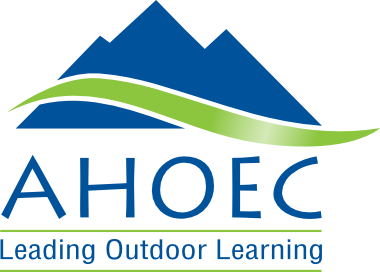The AHOEC code of conduct


AHOEC’s code of ethics and professional conduct
Section 1: Introduction
1.1 The purpose of this Code is to promote voluntary standards of professional behaviour within the Association. As a professional body promoting good practice in Outdoor Education Centres our Code requires members to discharge responsibilities in a manner which compromises neither the Association Itself, nor the users of those centres run by our members. A fundamental principle of membership is an acceptance of the clear expectation that the conduct of our members can be justified professionally, ethically and morally.
1.2 The compilation, revision, updating and policing of the Code shall be the responsibility of the Association Executive and subject to ratification at an AGM.
1.3 The Code is set out as principles under the following sections:
- Professional Integrity
- Professional Relationships and Responsibilities
- Professional Standards
- Relationship with Centre Users
- Commitment to Positive Values in Environmental Issues
- Interpretation and Enforcement.

Section 2: Professional Integrity
2.1 Personal Integrity
The Association expects the highest standards of personal integrity. Whilst this will require personal acceptance of high professional standards, it will also be dependent upon the trust created between members. The qualities of fairness, honesty, consistency, truthfulness and discretion must be acknowledged as the basis upon which such trust can be built.
2.2 Personal Gain
Members should not accept favours, gifts or hospitality in situations which could bring the Association into disrepute.
2.3 Advertising
The Association logo should not be used for advertising purposes. However, where membership is quoted to clients or potential clients, then such mention should be clear, honest and contain no falsehoods or misrepresentations which might bring the Association into disrepute.
Section 3: Professional Relationships and Responsibilities
3.1 Professional Demeanour
The Association is judged by the conduct and presentation of its members as they carry out their duties. Consequently, there is a clear expectation that members of the Association should conduct themselves in a manner befitting professionals. When dealing with other members, agencies, centre users or general public, members should present themselves as responsible persons and in a manner which inspires confidence and trust.
3.2 Loyalty
Member of the Association should be loyal to fellow members and should respect and uphold their dignity. There is a clear expectation that any public reference to the conduct, integrity or quality of service of another member should be expressed with due care and respect for that person. However, this requirement cannot override the responsibility of a member of the Association to uphold the Association’s moral and legal obligations.
3.3 Working Relationships
Members of the Association should respect the needs, traditions, practices, special competencies and responsibilities of other institutions, associations, professions and agencies that share a common working environment.
Members of the Association must manage the operations for which they are responsible with clue regard to staff welfare, complying with all legal requirements, Health and Safety requirements, safeguards for Child Protection Requirements and with due regard for Equal Opportunity and Ethnic Minority issues.
Section 4: Professional Standards
4.1 Working Competence
Members of the Association must work within the limits of their competence, taking all reasonable steps to ensure that the services they provide or manage are based on justifiable working practices that place proper emphasis on training, qualifications and experience.
Where a member delegates responsibilities, then such a member must be satisfied that the person to whom these are delegated is competent to carry them out, and in the knowledge that the ultimate responsibility for the delegate’s decisions remain with the member as if those decisions were their own.
4.2 Professional Development
Full members of the Association should acknowledge their responsibility to remain active in maintaining and developing their personal professional competence, and actively promote an understanding of Outdoor Education within their working environment and with the public at large.
There is a clear expectation that members will strive to improve and update their own knowledge and skills. Members should also endeavour to share their professional expertise within the Association and with their professional colleagues within the Centre they run.
Section 5: Relationships with Centre Users
5.1 Respecting the Rights and Needs of Centre Users
Members of the Association must accept their responsibility to promote and protect the dignity, privacy and safety of all those using their Centres.
Members of the Association must manage the operations for which they are responsible with due regard for customer care, Health & Safety issues, Child Protection requirements, Equal Opportunities issues and participants’ welfare.
Members of the Association must manage their operations in compliance with all legal requirements.
Where managing courses on behalf of (or as agents of) National Governing Bodies or other organisations, members must run such operations in accordance the requirements of the Governing Bodies or organisations.
5.2 Maintenance of Service to Centre Users
Members of the Association have a duty of care to Centre users whom they accept on and are engaged in courses. Where staff shortages financial restriction or industrial action might inhibit the delivery of the course in keeping with its stated aims and the expectations of users, then members must take all reasonable steps to establish priorities and balance the needs of the users with the competence, knowledge, training and experience of the staff available. On no account must the safety of users be compromised.
5.3 Personal Relationships
Members of the Association should both define and respect the boundaries between personal and working environments.
5.4 Physical and Mental Well-being
Members of the Association should exercise a duty of care which safeguards both the physical and mental well-being of their clients.
5.5 Confidentiality
Members of the Association are under a duty to safeguard confidential information relating to Centre users. This requirement is without prejudice to the need to share essential information with professional colleagues.
Section 6: Commitment to Positive Values in Environmental Issues
6.1 Minimum Impact/Sustainable Use
Members of the Association should actively promote positive values concerning conservation and enhancement of the countryside, endorsing the principle of “sustainable use” and “minimum impact”.
6.2 Community Sensitivity
Members of the Association should be sensitive to the impact of their operation on the local community in which they work; taking all reasonable steps to minimise any adverse impact.
6.3 Shared Use Sensitivity
Members of the Association should ensure that the operations for which they are responsible give reasonable consideration to the needs of other operational users who may wish to share the same working venues.
Section 7: Interpretation and Enforcement
Where there is uncertainty or dispute as to the interpretation or application of the Code, such matters shall be referred to the Association Executive. The Association Executive is empowered to instruct the Region where a dispute arises to convene a special meeting to investigate the issue. Where appropriate, a further Disciplinary Meeting may be convened. Both such meetings should comprise an out-of-Region member of the Executive as Chairman, either the Regional Chair or Regional Secretary and three other full members of the Association.
The outcomes of the above meetings may include:
- No action required
- Written guidance or advice
- Written warning
- Temporary suspension of membership
- Withdrawal of membership
- There is a right of appeal to the next quorate meeting of the Association Executive whose decision will be final. The above disciplinary procedures are without prejudice to NAHT membership.

